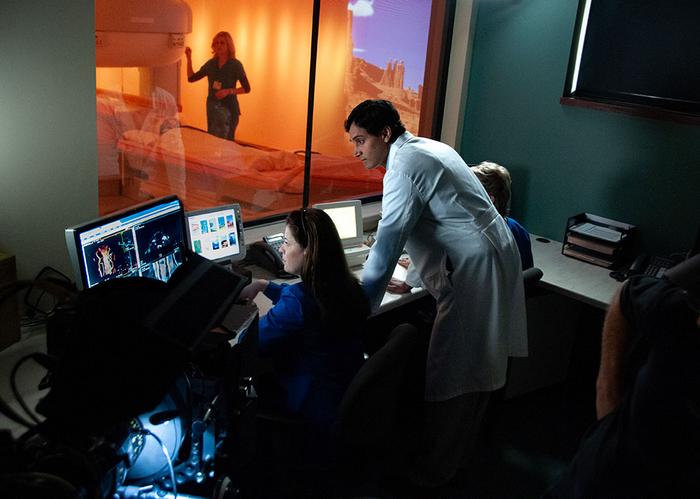SOUTHFIELD, MI, Aug. 7, 2024 – New Corewell Health™ research suggests an MRI scan can help predict whether patients with intermediate-risk prostate cancer (cancer confined to the entire prostate) may have more aggressive cancer in five years. Knowing this could potentially help doctors determine if treatment is needed up front vs. using a method called active surveillance where the disease is closely monitored over time. The study, recently published in the Journal of Urology, is the first to evaluate this risk group.

Credit: Corewell Health
SOUTHFIELD, MI, Aug. 7, 2024 – New Corewell Health™ research suggests an MRI scan can help predict whether patients with intermediate-risk prostate cancer (cancer confined to the entire prostate) may have more aggressive cancer in five years. Knowing this could potentially help doctors determine if treatment is needed up front vs. using a method called active surveillance where the disease is closely monitored over time. The study, recently published in the Journal of Urology, is the first to evaluate this risk group.
Currently, there has been a growing trend to manage low-risk prostate cancer patients with active surveillance to help patients avoid side effects associated with surgery or radiation. Patients are considered low risk when less than half of one lobe of the prostate is affected, and the cancer cells haven’t mutated or changed much. However, for intermediate-risk patients, choosing what treatment path is best can be a bit more challenging for doctors.
“While active surveillance is the standard of care for low-risk patients, it’s been unclear whether patients with a slower-growing form of intermediate-risk prostate cancer should be carefully watched or undergo immediate treatment,” said Kiran Nandalur, M.D., principal investigator of the study and a radiologist at Corewell Health William Beaumont University Hospital. “Our data suggests that an MRI can show suspicious lesions based on size and markers of tumor aggression, which may help doctors differentiate a treatment path for these patients.”
In the study, about 1,500 low- and intermediate-risk patients across Michigan were examined to determine if individuals with suspicious findings on an MRI test returned with a more advanced stage of the disease within five years. Here’s what the study found:
- Overall, 36% of the study participants who were watching their prostate cancer demonstrated more aggressive disease within five years.
- Considering traditional risk factors and using an MRI classification system that rates lesion suspicion, patients with high-risk imaging features were approximately 130% more likely to have more aggressive disease on follow-up than those with low-risk imaging results.
- Suspicious lesions on an MRI indicated more than twice the risk of progressive disease in both low-risk and intermediate-risk prostate cancer patients, which has not been previously shown in the intermediate-risk patients.
“The implication for patients and doctors is that an upfront MRI is important before undertaking any active surveillance for prostate cancer since it may help predict if an individual might come back with worse disease later,” Dr. Nandalur said. “This type of imaging helps pave the way for treatment planning so patients can live their lives to the fullest whether they decide to watch their cancer or seek treatment.”
Additional institutions contributing to the study include the Department of Urology at Wayne State University in Detroit, Michigan; Michigan Institute of Urology in West Bloomfield, Michigan; Brady Urologic Institute at Johns Hopkins University in Baltimore, Maryland; and the Michigan Urological Surgery Improvement Collaborative.
About Corewell Health™
People are at the heart of everything we do, and the inspiration for our legacy of outstanding outcomes, innovation, strong community partnerships, philanthropy and transparency. Corewell Health is a not-for-profit health system that provides health care and coverage with an exceptional team of 65,000+ dedicated people—including more than 12,000 physicians and advanced practice providers and more than 15,500 nurses providing care and services in 21 hospitals, 300+ outpatient locations and several post-acute facilities—and Priority Health, a provider-sponsored health plan serving more than 1.3 million members. Through experience and collaboration, we are reimagining a better, more equitable model of health and wellness. For more information, visit corewellhealth.org.
Journal
The Journal of Urology
Subject of Research
People



